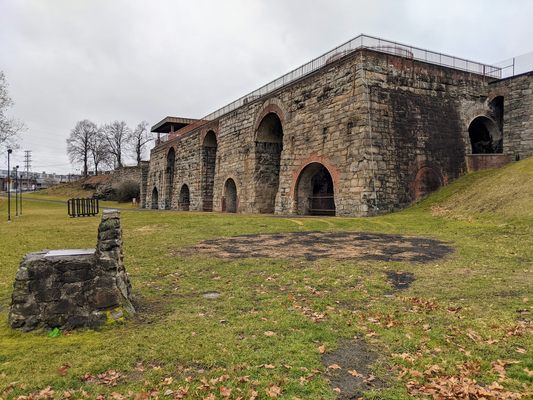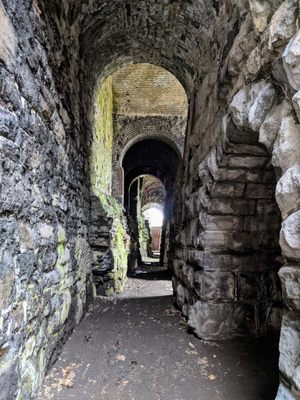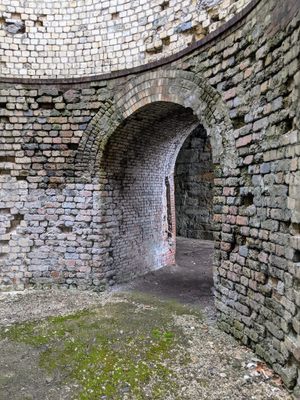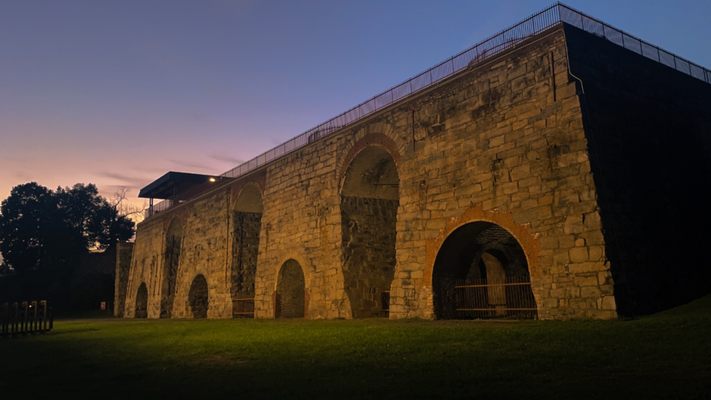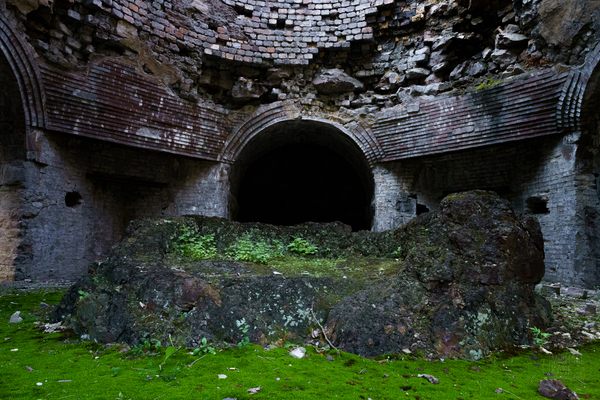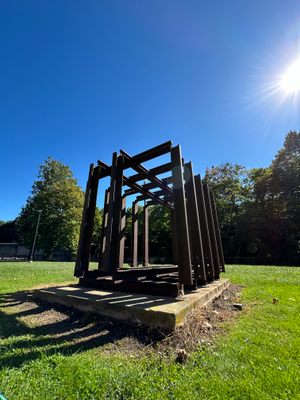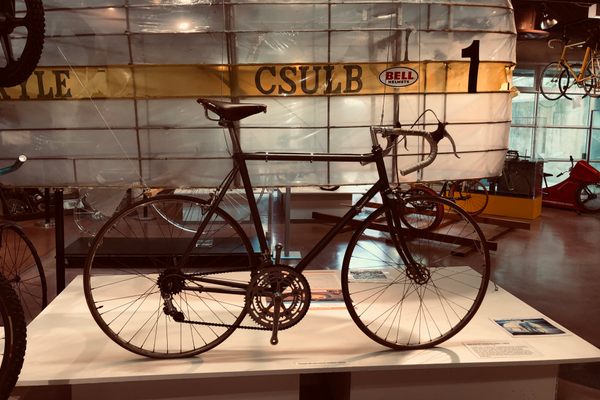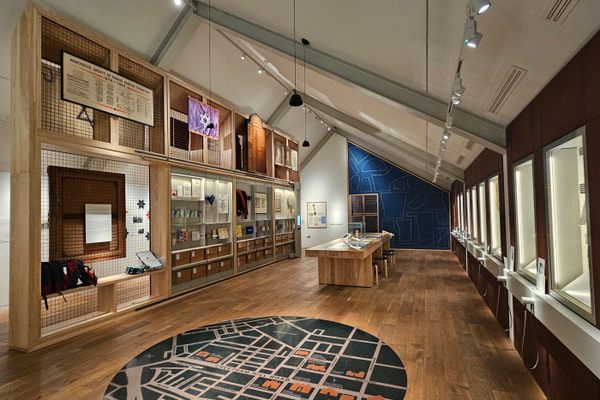About
Along the banks of Roaring Brook, in downtown Scranton, Pennsylvania, lie the ruins of former iron-making blast furnaces, now transformed into a park and historic site. The furnaces were built between 1848 and 1857. The furnaces were part of the Lackawanna Iron & Steel Company, which was once the largest producer of pig iron in the United States. This iron was largely used for making T-rails for the railroad industry and nails. In 1902, the plant was moved to Lackawanna, New York due to Lackawanna’s proximity to mines producing high-quality iron ore.
The furnaces were blast furnaces. They were operated by layering iron ore, limestone, and anthracite coal at the top of the furnace. This mixture was heated—melting the ore and limestone. The melted limestone acted as a flux, removing impurities from the melted iron. The melted iron (known as “slag”) and flux were funneled down to the bottom of the furnace, where they were separated. The iron was removed for sale or processing into manufactured goods. This process is still used in iron manufacturing, though there have been some technological advances over time.
In 1971, the site came under the control of the Pennsylvania Historical and Museum Commission and is currently managed as a part of the Pennsylvania Anthracite Heritage Museum.
Related Tags
Community Contributors
Added By
Published
November 2, 2023
